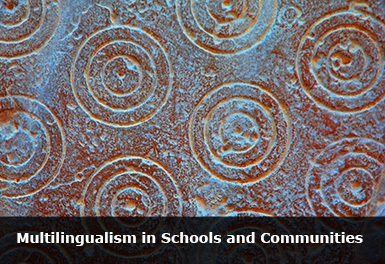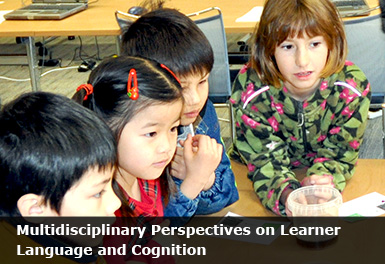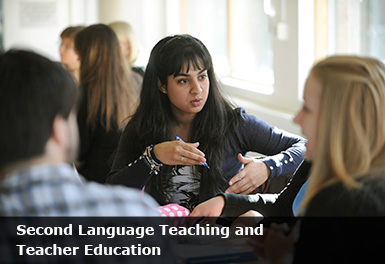Members of the research group are currently engaged in
research projects in three main areas of enquiry:

Multilingualism in Schools and Communities
Some of our recent and ongoing projects in this area include the education strand of a large scale AHRC-funded interdisciplinary and multi-institutional project entitled Multilingualism Empowering Individuals, Empowering Society (MEITS). This focused on the relationship between multilingual identity and language learning. The study involves international collaborators as well as Modern Languages practitioners in school. A second AHRC funded project in collaboration with the universities of Oxford and Reading examined the link between multilingualism and creativity. The work on multilingual communities has included a series of studies funded by the Bell Foundation on the link between second language development and social cohesion in multilingual contexts. This work also draws on the network of local and international practitioners and scholars in the field of community language education established through Cambridge Research in Community Language Education (CRiCLE). Another study funded by the British Academy focused on analysis of school language policies across a representative sample of secondary schools in England.

Multidisciplinary Perspectives on Learner Language and Cognition
This strand of research activity focuses on different social and cognitive processes involved in second language acquisition. Our expertise is in the following sub-areas: identity and its relationship with language learning in schools; synchronous online language learning and teaching; online and face-to-face learner engagement; online and face-to-face peer interaction; language assessment; language learner motivation (exploring the influence of learners’ beliefs and metaphorical representations of their experience of foreign language learning); and learner strategy (researching the reciprocal interaction between first language and additional language learning and acquisition); sociocultural theory of mind and second language learning (the role of collaborative talk in thinking and literacy development).

Second Language Teaching and Teacher Education
As part of our MEITS project we are trialling an in-house developed identity-oriented pedagogy in schools as part of our intervention programme. The approach will be disseminated to schools and teacher education systems nationally and internationally in follow-up activities. Similarly we have been working on teaching and assessment frameworks for use with EAL pupils and on teacher training programmes to improve teacher assessment literacy of bilingual children. A further strand of research looks into the potential of using digital technology for training and education of language teachers.
